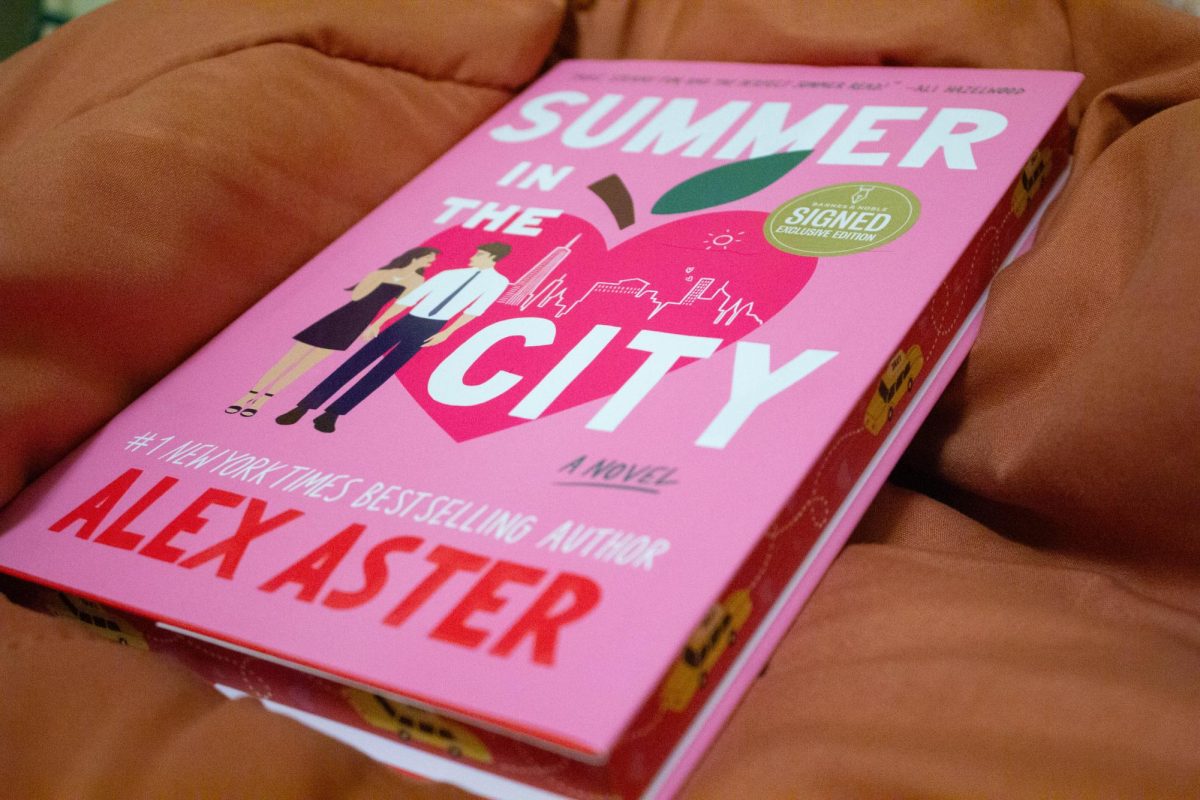I like Dan Levy well enough for what I’ve seen him in: a few episodes of “Schitt’s Creek,” that weird cameo in the new “Haunted Mansion” movie, and that one credit card commercial he did. That being said, I did not particularly like him in “Good Grief,” a film that made its theatrical debut at the end of 2023, before a worldwide Netflix release on January 6. Not only did Levy write and direct the movie, but also starred in it, much to its detriment, as I think it would’ve been a significantly better movie had he stepped aside and let someone else assume the main role.
The story follows Levy, or Marc, his character, as he grieves the death of his husband, who died suddenly in a car accident, with the help of his two closest friends. Throughout his journey, he makes discoveries about his late husband, his friends, and himself, allowing him to discover not only how to survive after the tragedy, but thrive as well.
It’s a relatively simple premise, and it’s executed well enough. For me, I felt most engaged with Marc’s discoveries surrounding his husband after his death; I was interested in his reactions as he learned more, and how, overall, the character dealt with the difficult position they put him in. For someone else, especially someone who has recently lost a loved one, likely other areas of the film would stand out over that one. I could see how the areas of grief explored could be helpful or resonant with someone in that position. There are a variety of aspects to grief that are discussed, not just from Marc’s perspective, but also his friends trying to help him through it.
Beyond that, the film touches on a number of other, more general topics such as love, relationships, loneliness, uncertainty, etc. It’s not that the commentaries are bad or misplaced anywhere, rather they’re often too blatant, or feel like they’re talking at me rather than to me. They feel sort of “fake deep:” surface level observations about life presented as is with seemingly little attempt to better weave them into the story. It’s very “telly” as opposed to “showy,” resulting in these sprawling bits of dialogue that often feel extremely on-the-nose; almost like someone wrote down a thought in the first draft and meant to refine it later but never did.
That being said, I do think it’s apparent throughout the film that Levy had good intentions; as expositional as some of the dialogue might be, it never feels pandering. It’s apparent that he was genuinely trying to facilitate an exploration of grief, and from some interesting angles no less, like how grief can be impacted by posthumous discoveries or the role friendship can play in getting through hard times. I’ve read interviews with Levy about the project, and from what I can tell, he seems genuinely passionate about it and trying to tell a story that can connect with people. That’s not even to mention the excellent efforts this film makes for representation, particularly for the LGBTQ+ community.
The pieces were here for this to be really good, but at the end of the day, I think the film thinks it’s better than it is. And that loops back around to what I unfortunately think is the ultimate force holding it back: Levy himself.
He has too many eggs spread out across too many different baskets. If he would’ve brought other people in for some of the positions he assumed himself, I think it’s likely this would’ve been better. The worst areas are the writing and the acting; the directing is fine, it’s not great or terrible, so if he wants to keep that one, whatever, go ahead.
It’s very apparent in both the writing and acting that Levy is out of his element. Not only is he trying to bite off dramatic acting here, but dramatic writing at the same time; that’s a lot to tackle at once for someone primarily known as a comedic actor. I have no doubts as to Levy’s comedic talents, but drama is an entirely different can of Spam. It’s very apparent he’s struggling the whole film with delivering his clunky dramatic dialogue in an impactful way. In the film’s lighter, more relaxed, comedic moments, you can see a difference in Levy; it seems so much more natural for him, from a writing and acting perspective. Neither are clunky or awkward like their dramatic counterparts. It sounds like he doesn’t believe what he’s saying during his dramatic segments. I don’t see any of the pain and heartbreak that the movie insists is there. It feels very amateur, probably because it is. Maybe it wouldn’t have been as big of a problem if Levy would’ve just picked one lane and went all in on that. I have no problem with trying to branch out, but he picked too much to branch out on at once. There was clearly a vision and intention here, but he does not possess the tools as of right now to execute it properly, at least not all on his own like he’s trying to do here.
Levy’s supporting cast, specifically Ruth Negga and Himesh Patel, do a much better job executing the material. Negga steals any scene she’s in; she has a great playfulness about her while still being able to handle the weight of the more emotional scenes. Himesh holds his own similarly, finding a satisfactory balance between jokes and quips and more serious moments. I wish that we could’ve seen more of them, because they easily gave the best performances of the movie.
While some of the values and concepts that the film seems to have been built on manage to shine through, “Good Grief” ultimately misses the mark on the emotional impact it clearly wants to have. I have nothing against Dan Levy, and I think what he tried to do here is commendable on a number of levels. However, I also think he got in his own way, and if he would have stepped aside and let someone else command one of the many ships he was trying to stear at once, they might have actually reached their destination.





